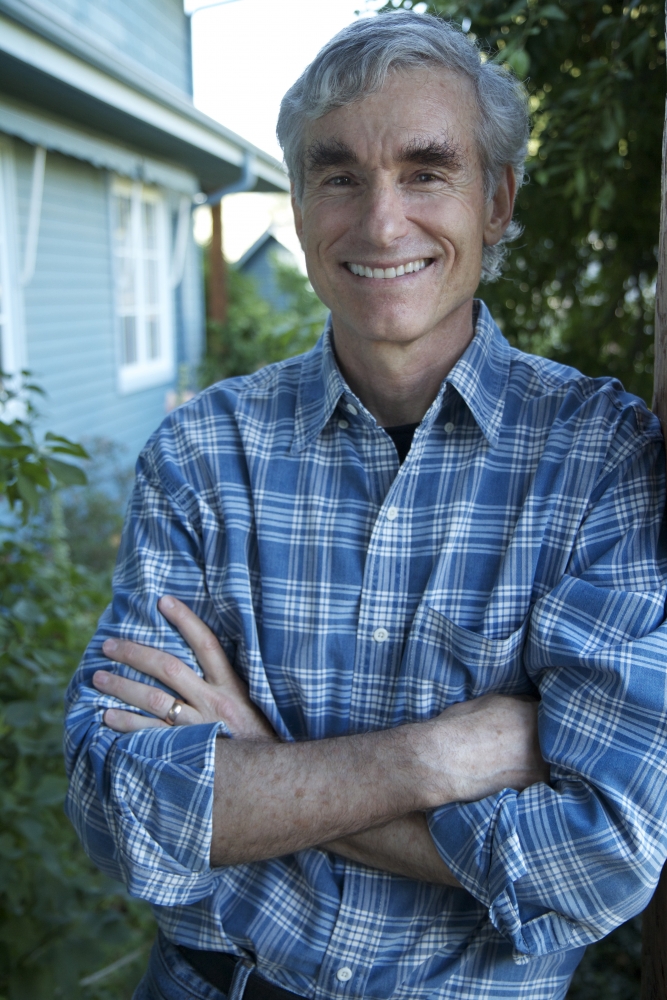
‘Inspiration and Magic’
Growing up in Colorado ranch country, T.A. Barron dreamed of becoming a writer, outdoorsman and conservationist. Two decades and more than 30 books later, he has achieved all three and then some.
He gives much of the credit to nature, which he has described as his “ultimate source of balance, inspiration and magic.” In fact, nature plays a starring role in most of Barron’s novels, from New York Times bestseller “The Great Tree of Avalon” to the entire series “The Merlin Saga,” now being made into a feature film by Disney.
“Nature has always been my greatest inspiration,” Barron reiterated in a recent interview, “and, I would add, also my friend, my healer and my teacher.”
No wonder, then, that he is so driven to protect it.
A lifelong environmentalist, increasingly as prolific in his conservation philanthropy as he is in his writing, Barron has donated $500,000 to UC Santa Barbara to create the T.A. Barron Endowed Environmental Leadership Fund. The fund is meant to expressly support and advance environmental advocacy by undergraduates in the humanities.
“If we are going to save this precious planet of ours — the only place we know in the entire universe that has life — we have to think about ways that involve philosophy and history and literature, and connect with people on those levels of fundamental ideas,” Barron said of the motivation for his gift, his first to UCSB. “That’s why the humanities are so important.”
“UC Santa Barbara is a laboratory for the very best ways to communicate the important ethical, historical, cultural and literary ideas about protecting our environment,” added Barron, who helped to create the Princeton Environmental Institute at Princeton University. “And I can only imagine that everyone who is part of the program is going to be enriched and inspired for the rest of their lives. I’m honored and very grateful to UCSB and the wonderful folks there who make it possible for me to help, in my own small way, all the great things happening in the environmental humanities.”
With more than 70 faculty members who teach courses that address issues in the environmental humanities, UCSB already is an international leader in the field, a growing focus in undergraduate curriculum. Too, the campus has a range of existing related programming, from the English department’s Literature and the Environment Center, to the Environmental/Climate Justice Hub based at the Orfalea Center for Global and International Studies, to the Blue Horizons and GreenScreen programs in environmental media production.
This new initiative raises the bar another notch (or three), in part with its focus on undergraduates. The Barron Fund will help provide first- and second-year students with ways to explore environmental advocacy through the lens of liberal arts education.
“Environmental advocacy is above all else an act of persuasion,” said John Majewski, the Michael Douglas Dean of Humanities and Fine Arts at UCSB. “Given all the ways in which our culture communicates about significant and important issues — including literature, music, film and the arts — the humanities have a vital role in addressing the critical environmental issues that now confront us.”
“T.A. Barron’s transformative gift has allowed our faculty to design an innovative program in which our students learn about the environment through the prism of literature, history, film and the arts, and then apply what they have learned to the practical realities of organizing for change,” Majewski added. “We believe that this program can inspire students much in the way that T.A. Barron has inspired people around the world through his writings, philanthropy and activism.”
With the fund, UCSB aims to provide outstanding students with opportunities to combine academic training, team-based learning and practical experience to help make a difference in the world by becoming effective and persuasive advocates for the environment. Research, mentoring and student scholarships in environmental humanities are among the possibilities on the table, along with curricular innovations and community-building activities.
“What we are doing at UCSB is planting seeds,” said Barron. “I can’t tell you how those seeds are going to grow or what they might produce, but I have a feeling those seeds will take root and help these young people become the leaders who will ask really thoughtful questions and guide us through all these tough challenges.”
“This is a time in humanity’s history where we have to be asking ourselves, ‘What kind of world do we want to give to our children and their children?’” he continued. “There are fundamental ethical, cultural, religious, literary avenues to address those questions, and I’m sure the young people who go through this program are going to be thoughtful contributors to that discussion and become leaders in finding the way to go for the next era. This program has a definite advantage being at UCSB, that has to be one of the most beautiful campuses on the planet — everyone is reminded of the presence of the environment and our dependence on it, as well as the joy and inspiration we get from it.”



